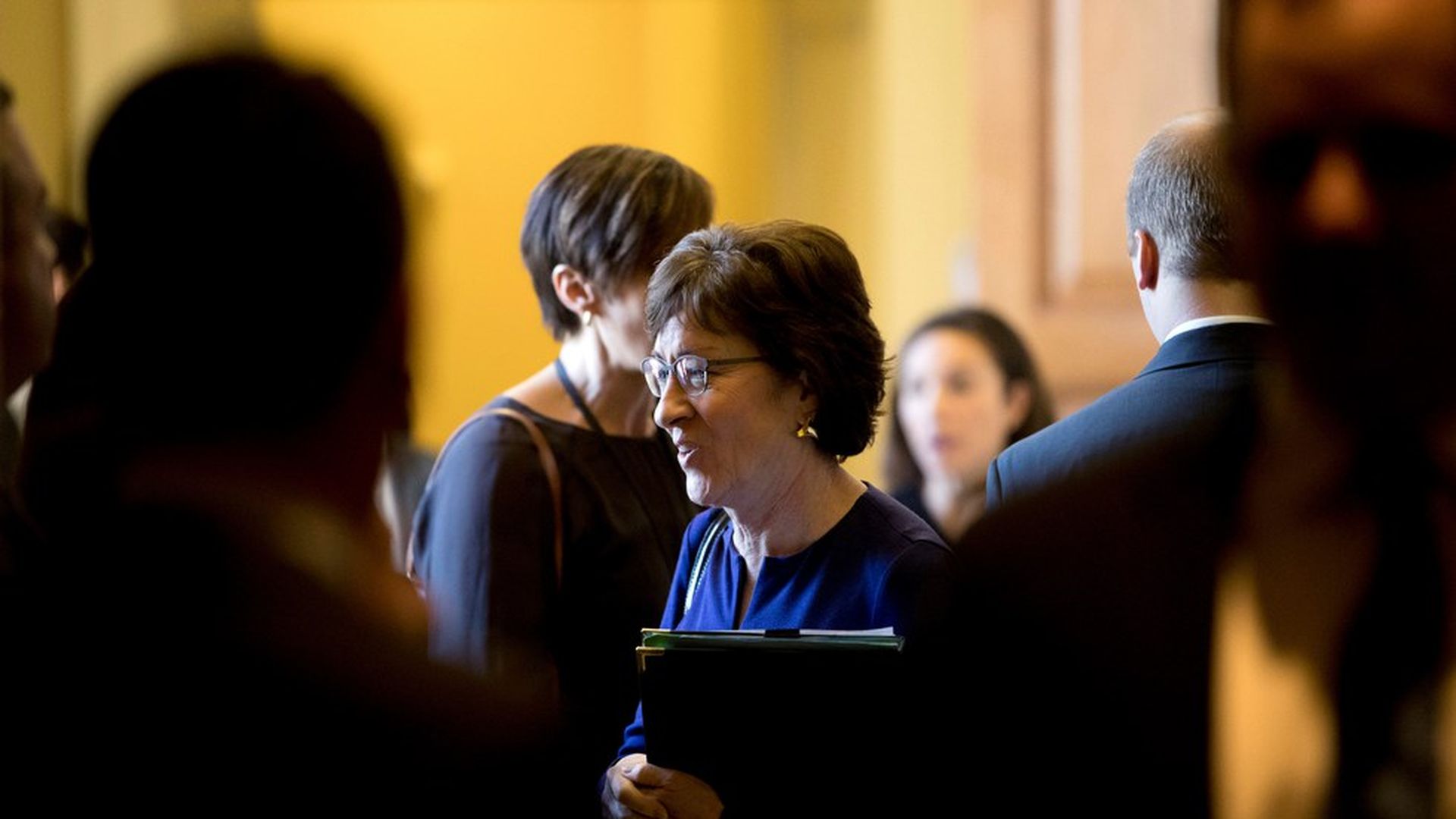Oct 31, 2017
How the Senate tax bill is shaping up
Add Axios as your preferred source to
see more of our stories on Google.

Tax demands made by Sen. Susan Collins may already be included in the Senate plan. Photo: Andrew Harnik/AP
Add Axios as your preferred source to
see more of our stories on Google.

Tax demands made by Sen. Susan Collins may already be included in the Senate plan. Photo: Andrew Harnik/AP